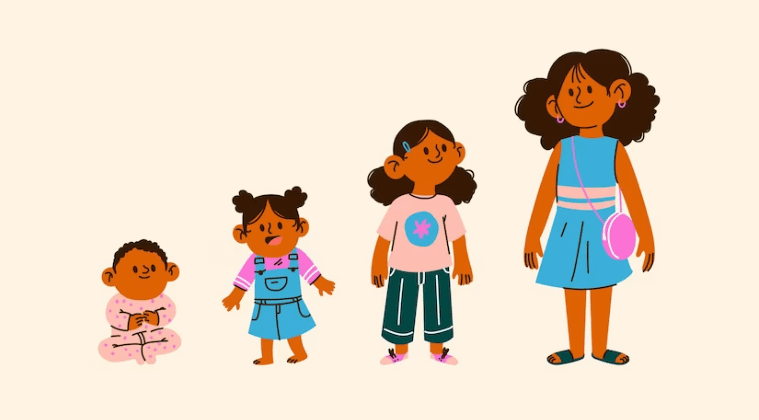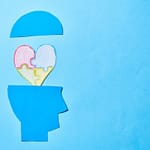Hola/Hi!
Welcome back! Last blog post, we discussed neurodiversity and neuro-affirming spaces.
In this blog post, I (Dr. Josie) am writing to you as a parent to two wonderful neurodiverse children to share our journey and provide some helpful resources.
Our Journey
As discussed in the previous blog post, neurodivergence encapsulates differences in interacting with the world (internally and externally). Neurodivergence does NOT mean less than or deficit. It’s a difference in thinking, learning, and processing information and/or stimuli. As a family, we value and uplift differences across all areas of our lives (e.g., skin color, body type, sexuality, etc.). However, to be honest, and transparent, as we’ve embarked on this journey, we’ve had to return to this core understanding and value to ground ourselves. It can be easy to be swept into the environmental demands and normalization of the deficit-based lens and language for how our children learn or process information differently. Still, by returning to a strength-based understanding, we can support our children holistically and advocate for them within systems that may not have our same understanding and values. Within our extended families, we’ve had many conversations about learning/processing differences and normalizing neurodiversity in this way. We’re actively navigating a lack of understanding and cultural norms of mental health stigma.
I am a parent to a 10 and 7 year-old neurodivergent sons. Our oldest was diagnosed with a learning difference and ADHD. Learning differences (e.g., dyslexia, dysgraphia, dyscalculia) and ADHD often go hand in hand. For my son, his learning difference was diagnosed first. We saw this learning difference in my oldest pretty early on, but because we are a bilingual household, it was hard for us to tease apart what was bilingualism and what was a learning difference. When my oldest was in first grade, we worked with his teacher to problem-solve his learning differences. In that process, we embarked on the journey to get tested by someone (outside of the school system) who could take into account his bilingualism, and we found out that his learning difference went beyond processing in two languages. We then turned to the school to advocate for his needs and set up his 504 plan (another post on this specific process later). We worked with a School Psychologist to help us navigate the 504 process. Later on, in third grade, we identified ADHD for my oldest, and we continue to work hand in hand with his teachers, psychiatrist, parenting coach, and pediatrician to support him. I want to acknowledge here that we are privileged to have the resources and knowledge to navigate diagnoses and support in this way for them.
Since we had been through this process once before, when my youngest entered first grade, we knew what to look for and embarked on the testing process for him rather quickly. The boys are transitioning into 4th and 2nd grades and thriving in academics, extracurricular activities, and social relationships.
Parenting Shifts
I think of three things when asked about what shifts I’ve had to make regarding my parenting expectations and parenting mindset.
One, committing to my own learning and unlearning to identify what may be coming up for me, influencing my perspective of my children, and building my knowledge to best support them.
Two, owning that, I must do this work for my children. Parenting is exhausting, and at times, I phone it in. I’ve had to remind myself that we as parents are their biggest advocates, and they are gifted to us to guide and support through this life journey, especially in areas where society might not quite understand them.
Three, I must take time for self-care and connection with my life partner (their father) to be able to show up as a balanced version of myself for them (note, I am intentionally not using perfectionist language here-there is a lot of pressure for us to always be the best version of ourselves for our children-this isn’t real and doesn’t benefit them).
I want to invite you to pause and reflect on yourself. What shifts have you had to do in your parenting mindset?
How do we take care of ourselves as parents?
As parents, we must care for ourselves and learn emotional regulation skills. This is a critical skill in parenting and especially for children with ADHD, as emotion regulation is a challenge for them and can show up in melt-downs (due to sensory overload). Not only this, I have found that as a parent committed to parenting consciously and intentionally breaking patterns of abuse and trauma, I’m often triggered by my children’s behavior and have needed to build my own toolbox for managing myself to be more balanced for my children. Learning to soothe my nervous system and cope with distress has been vital. Self-care in this context goes beyond capitalist notions of self-care (i.e., spa days) but should be thought of as skill development in caring for our nervous system health so that we can regulate ourselves and co-regulate our children.
Pause and reflect. What regulation and soothing skills work for you in the context of parenting?
In summary;
- Neurodivergence does NOT mean less than or deficient.
- A holistic and strength-based approach can help you stay grounded.
- Changes or shifts in our own expectations and parenting mindsets are essential.
- Taking care of our nervous systems as parents is critical.
Please connect with us on Instagram, Facebook, and our podcast, The Prickly Couch, and let us know about any topics you want us to discuss!




